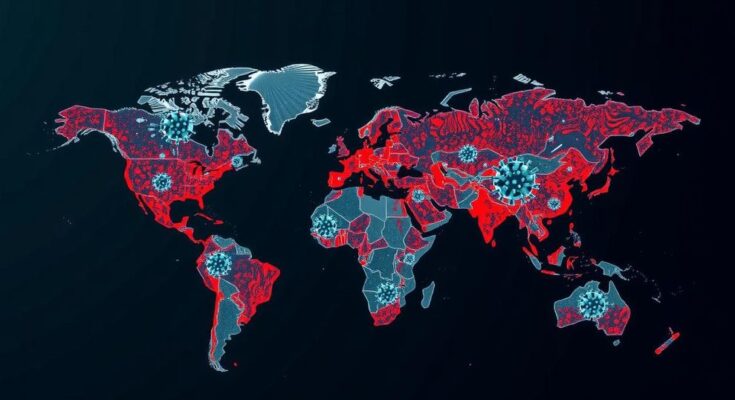Mpox, also known as monkeypox, is a contagious disease causing outbreaks in parts of Africa, notably the Democratic Republic of Congo. Symptoms include fever and a painful rash. It spreads through close contact, particularly sexual contact, and serious cases can be fatal, especially in children. Vaccines are available, but access is limited, prompting the WHO to request emergency vaccine distribution as the situation escalates.
Mpox, previously referred to as monkeypox, is a contagious disease caused by a virus related to smallpox, predominantly affecting populations in Africa. The World Health Organization recently declared the mpox outbreak a public health emergency of international concern, with significant fatalities, particularly in the Democratic Republic of Congo. Symptoms typically begin with fever and body aches, escalating to a painful rash that can cause scarring. While most cases resolve within 21 days, some can be severe and even fatal, particularly in vulnerable populations such as children.
Transmission of mpox occurs through close contact with infected individuals, primarily through skin-to-skin interactions, including sexual contact. The spread can also result from contact with contaminated objects such as clothing or bedding. Although mpox has been endemic in certain African regions, recent outbreaks have emerged in countries such as Burundi, Rwanda, and Kenya. The emergence of multiple strains, particularly the concerning Clade 1b, raises alarm as it may spread more rapidly and lead to more severe cases.
Healthcare providers and families of infected individuals are at the highest risk of transmission, as are children, given their proximity in social interactions and lack of immunity from the discontinued smallpox vaccination. Prevention recommendations emphasize avoiding close contact with infected persons and maintaining high hygiene standards in affected areas.
Vaccines do exist but are mainly available to at-risk populations. A recent push by the WHO for emergency approval of mpox vaccines underscores the urgency of the situation. The Africa CDC has declared a continent-wide public health emergency, signaling an imperative for governments and health organizations to coordinate responses and enhance medical supply distribution to affected regions. Without swift global action, there are serious concerns regarding the potential for mpox to spread beyond Africa.
Mpox, a viral disease within the same family as smallpox, has historically been endemic in the tropical rainforests of West and Central Africa. It was originally transmitted from animals to humans but is now spreading among humans, particularly in communities with close contact. The ongoing outbreaks have led to escalating concerns from health organizations due to rising infection and mortality rates, prompting international emergency responses. Understanding the symptoms, transmission mechanisms, and risk factors is crucial for public health responses. With the recent emergence of new strains, the disease poses a more immediate threat, particularly due to its potential to affect children and individuals with weakened immune systems.
In conclusion, mpox remains a significant public health threat, particularly in African nations where outbreaks are prominent. The disease’s transmission dynamics underscore the need for vigilance, especially in vulnerable populations. Enhanced vaccination efforts, increased public awareness, and strict hygiene practices are essential to control the outbreak and prevent further spread both within and beyond affected regions. Global cooperation is necessary to ensure effective management and containment of mpox and its evolving strains.
Original Source: www.bbc.com




